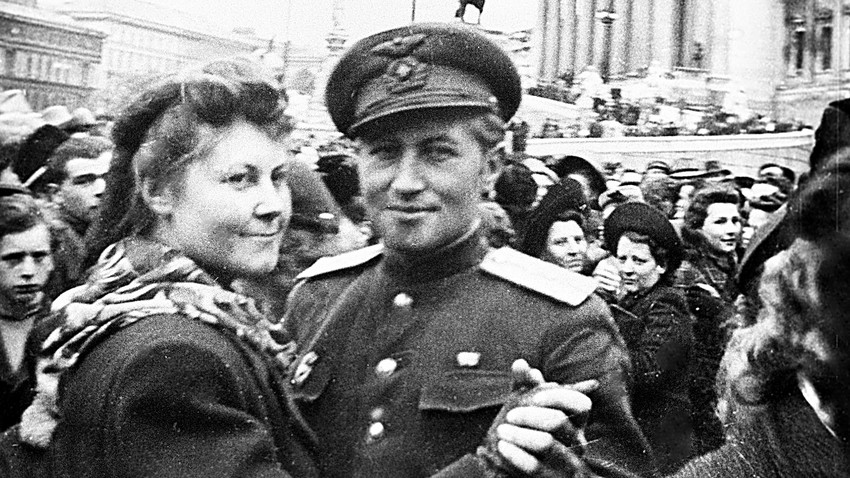
An Austrian woman and a Soviet officer are dancing in the streets of Vienna after the defeat of Nazi Germany
Anatoly Grigoryev/Sputnik“The only thing that my mother knew about my father was that he was from Kalinin [modern-day Tver], and his name was Mikhail Groman or Grossman,” said Eleonora Dupuis, an Austrian who has been looking for her Russian father for the last two decades.
This arduous endeavor has required multiple visits to Russia, many requests to archives, meeting officials, conducting a number of DNA tests, taking part in TV programs and communicating with many people. As a result, 10 men who might be her father were found, but none turned out to be him. She published a book about her search.
Her story started right after the war. Eleonora’s mother lived in the Austrian city of St.
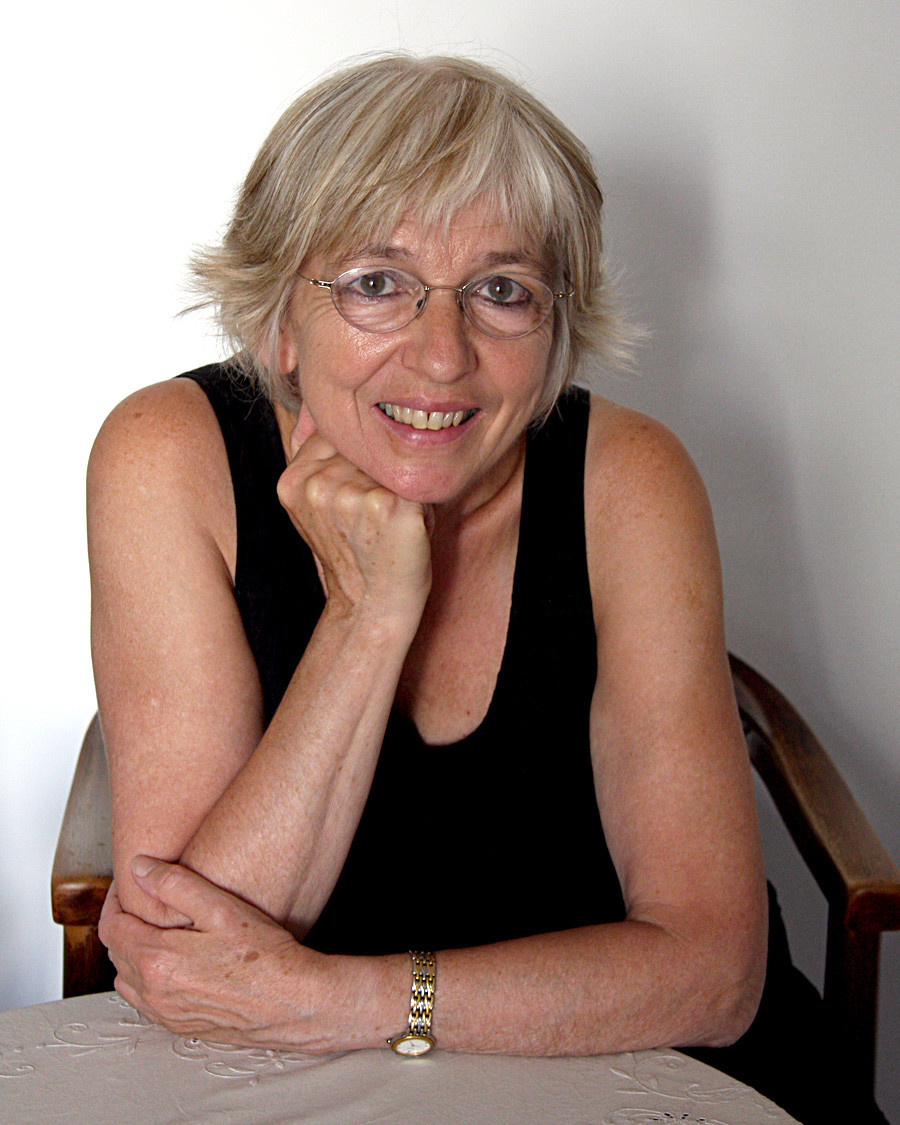
Eleonora Dupuis started the search for her Russian father in the late 1990s
Eleonora DupuisEleonora’s parents' became acquainted in a mundane manner: two Soviet soldiers were passing by the garden where Eleonora’s mother was working and asked for water and fruit. One young man, Mikhail, returned the next day with some bread, which was in huge demand at the time. He also offered his help. “There was a lot of hard work in the garden and he also used to bring us as much bread as he could. He was a good person, and that was the way you appeared,” explained Eleonora’s mother in 1955 when the occupying powers withdrew their troops from Austria.
A few months after the love affair began, he was sent to the hospital because his leg wound worsened and there was the threat of amputation. At the time, Eleonora’s mother was two months
That was all the information Eleonora had until the late 1990s when she started her search. In a few years, however, her personal story became much bigger, turning into a phenomenon that challenged existing views of her country’s past
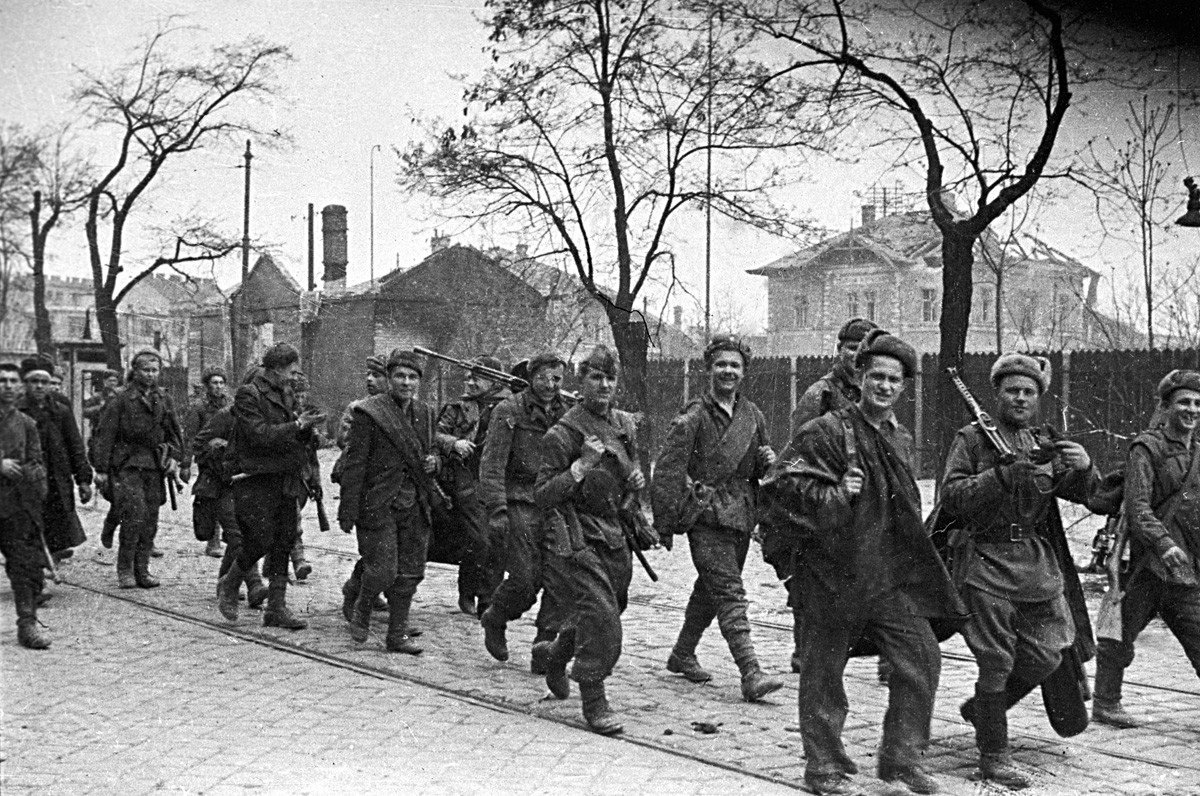
Russian troops march through the streets of Vienna soon after the fighting for the city was over
Boris Antonov/Sputnik“Eleonora Dupuis became the first one who said that she is proud of her Russian father who liberated Austria from Nazism, and she will find him,” said Olga Pavlenko, the vice-rector of the Russian State University for the Humanities, which organized a number of meetings of Austrians with their Russian relatives. “Gradually, Austrians’ attitudes to people like Eleonora started to change...’”
Dupuis confirms that Austrians began to perceive the “Russian children” (as they call themselves) differently when the public became aware of their stories: “The more they knew about us, the more they respected us. … They’re admired because of what they became after a poor and miserable childhood.” “Children of liberation,” which emphasizes the importance of Nazism’s defeat in those personal accounts, is now used more often
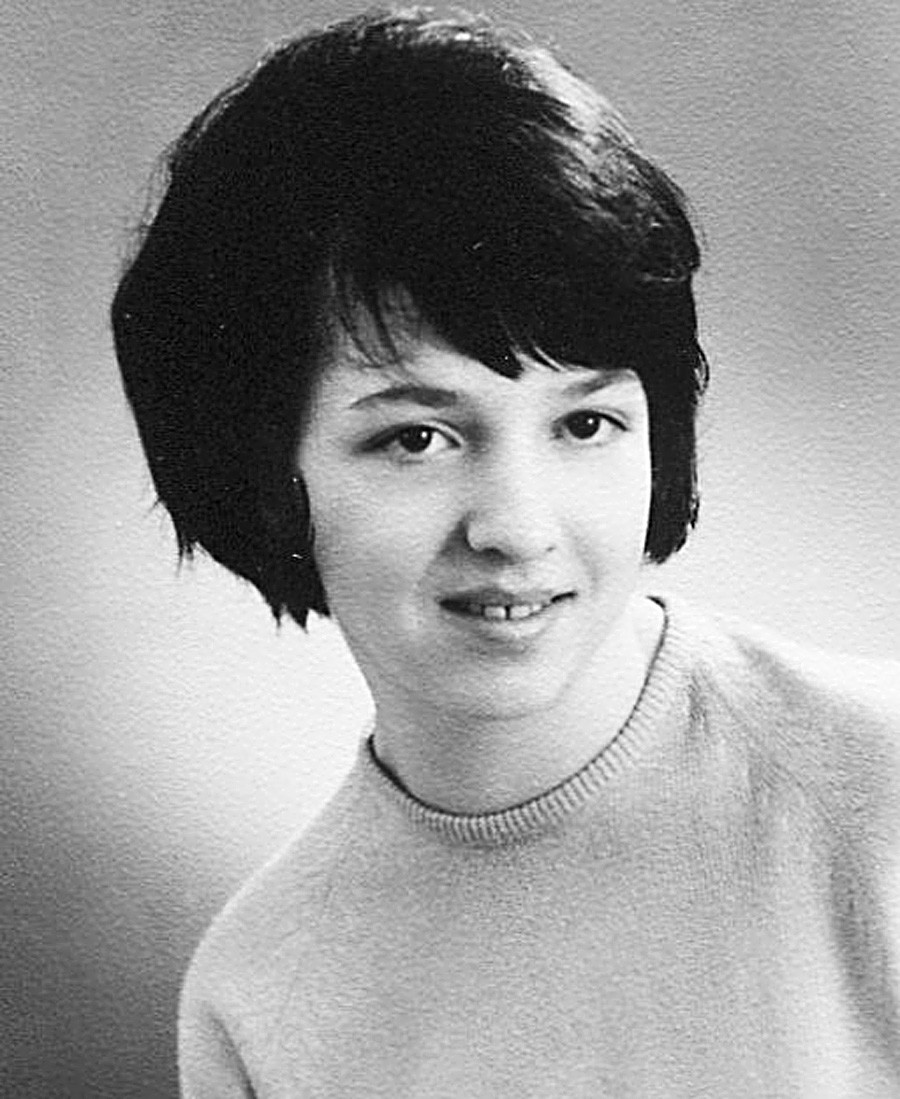
Eleonora Dupuis was not discriminated against as a daughter of a Soviet soldier
Eleonora DupuisMonica’s childhood story got a present-day continuation when with help from Dupuis she found her father, who was still alive at the age of 92. Suffering from Alzheimer’s disease, however, he was unable to acknowledge her existence.
Eleonora’s personal story was not so gloomy. She was not discriminated against, although her neighbors were well aware of her Russian father. Today, she knows about 20 people like herself, and most of their parents’ stories are rather romantic: Love affairs between Russian soldiers and Austrian women
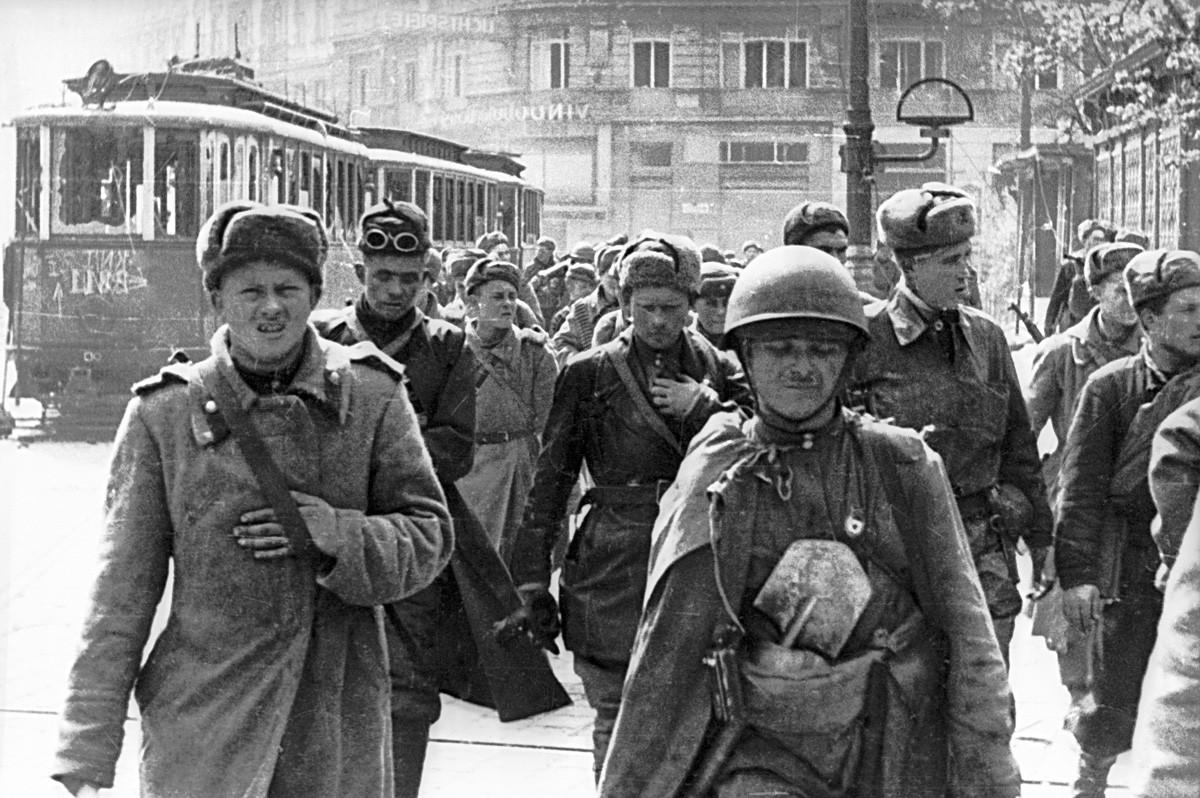
Soviet soldiers in liberated Vienna in the spring of 1945
Boris Antonov/SputnikIn general, when commenting on such events Eleonora emphasizes that “one cannot compare [the way the Red Army treated the local population in Austria] to what was done to Russians during the war: the destruction of whole villages and cities by Nazi troops.”
“There are no pastoral pictures after the horrors of war. Incidents of violence took place in the first months after the victory,” said Pavlenko. “The Red Army command, however, soon issued strict orders to execute those involved in looting and violence. Even Western historians have to admit that by autumn 1945 the wave of post-war violence was successfully curbed.”
Eleonora’s energy and determination, along with the help of Austrian historians, has brought the plight of “children of the liberation” who are looking for their Russian fathers to the attention of Foreign Minister Sergei Lavrov. He promised to help because in most cases it’s hard to find people with only partial and incomplete information. The usual procedures of archival request and research are of little assistance
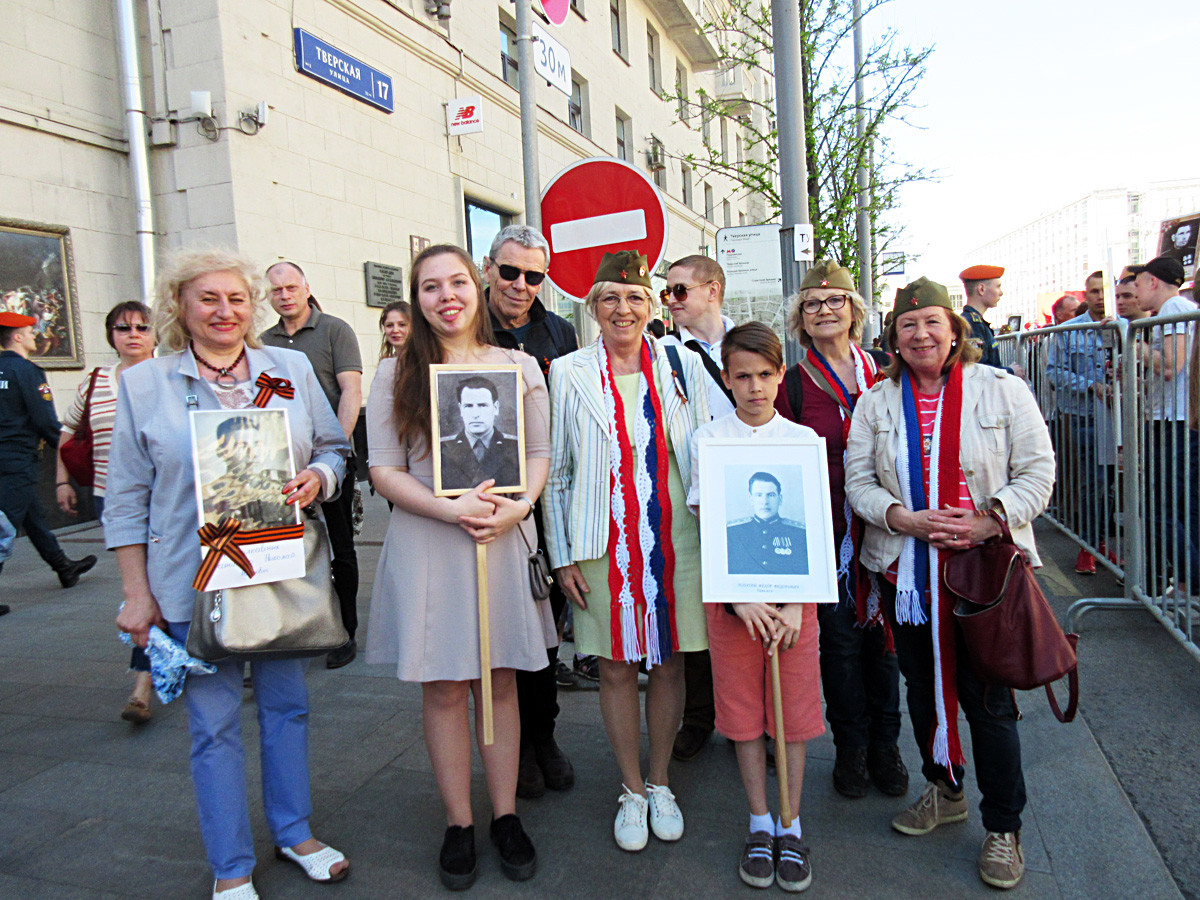
Eleonora Dupuis took part in the Immortal Regiment march for Victory Day in Moscow
Eleonora DupuisRegardless of her search’s results, she has discovered her “second homeland” in Russia. “It’s a touching story of overcoming the hatred of war and the search for mutual understanding,” said Pavlenko. Still,
If using any of Russia Beyond's content, partly or in full, always provide an active hyperlink to the original material.
Subscribe
to our newsletter!
Get the week's best stories straight to your inbox